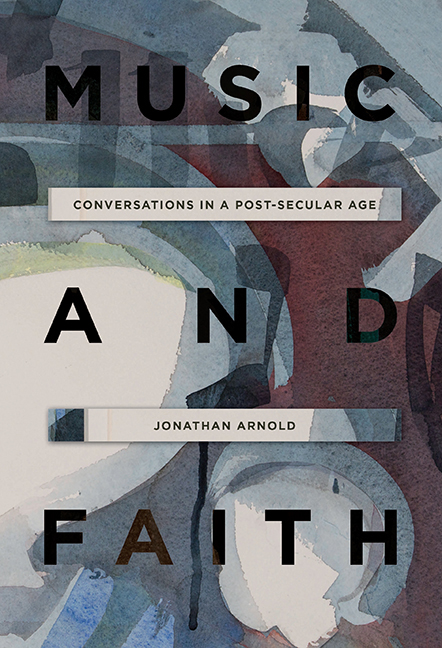Book contents
- Frontmatter
- Dedication
- Contents
- List of Illustrations
- List of Interviewees
- Preface
- Acknowledgements
- Introduction: Faith, Belief and Post-Secularism
- I MEDIEVALISM TO POST-SECULARISM
- 1 Music, Morality and Meaning: Our Medieval Heritage
- 2 Psalms and Hymns and Spiritual Songs
- 3 Eye Music
- Interlude I. ‘O Sisters Too’: Reviving the Medieval in Post-Secular Britain
- II THE HUMAN MIND AND SOCIETY
- III BELIEF AND UNBELIEF
- Conclusion
- Notes
- Bibliography
- Index
1 - Music, Morality and Meaning: Our Medieval Heritage
from I - MEDIEVALISM TO POST-SECULARISM
Published online by Cambridge University Press: 01 September 2019
- Frontmatter
- Dedication
- Contents
- List of Illustrations
- List of Interviewees
- Preface
- Acknowledgements
- Introduction: Faith, Belief and Post-Secularism
- I MEDIEVALISM TO POST-SECULARISM
- 1 Music, Morality and Meaning: Our Medieval Heritage
- 2 Psalms and Hymns and Spiritual Songs
- 3 Eye Music
- Interlude I. ‘O Sisters Too’: Reviving the Medieval in Post-Secular Britain
- II THE HUMAN MIND AND SOCIETY
- III BELIEF AND UNBELIEF
- Conclusion
- Notes
- Bibliography
- Index
Summary
Listen and attend with the ear of your heart.
And hark! I hear a singing: yet in sooth
I cannot of that music rightly say
Whether I hear, or touch, or taste the tones,
Oh, what a heart-subduing melody!
If we are to understand the place of sacred music in the post-secular West we need to know a little about its place in history and what ideas and values we have inherited. In order to do that, we need to begin in ancient Greece.
Our ‘ancestral’ heritage of musical theological thought can be divided into two, overlapping, categories or narratives through history. Firstly, the Pythagorean tradition, which is closely allied to ‘disclosive’ modes of musical significance (that is, where God is disclosed to us through the cosmological, rational, material nature of the universe) and the Orphic tradition, which is more akin to ‘affective’ modes of significance (that carry us outside of ourselves, change our attitude or lead us to contemplation or a new state of being).
The Greek mathematician Pythagoras (sixth century BC) and his notion of the harmony of the spheres was based upon his observations of the mathematical purities of musical ratios. Therefore his view was that the divine is disclosed through the created order and is, as Begbie puts it, essentially ‘rational’; it is a reflection of the cosmic harmony. The disclosive tradition continued with Plato (427–347 BC), for whom ‘Music gives us not only a model of harmonious balance, unity, and integrity, it actually implants cosmic harmony into the soul of humans.’ Plato's views were essentially dichotic or dualist, dividing the material from the ideal, the temporal from the eternal. But Plato also stood within the Orphic tradition, where music has the power to affect human emotions and soul. It could enhance virtue and it could be a ‘means to correct any discord that may have arisen in the courses of the soul … our ally in bringing it into harmony and agreement with herself’. Listening attentively, therefore, was of crucial importance, for ‘heard music for Plato has a positive ethical, political, and social potential’.
- Type
- Chapter
- Information
- Music and FaithConversations in a Post-Secular Age, pp. 35 - 49Publisher: Boydell & BrewerPrint publication year: 2019



